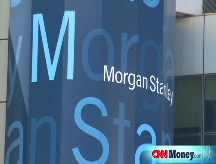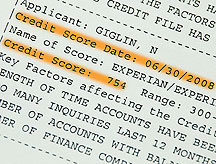Home buyers get cold feet
The shocking events over the last two weeks are hurting the already moribund real estate market.
| 30 yr fixed | 3.80% |
| 15 yr fixed | 3.20% |
| 5/1 ARM | 3.84% |
| 30 yr refi | 3.82% |
| 15 yr refi | 3.20% |
NEW YORK (CNNMoney.com) -- Housing markets finally looked like they might be stabilizing when the crisis on Wall Street hit last week, shattering many home buyers' resolve.
Glenn Kelman, founder of the online brokerage house Redfin, reports that business at his company had been humming, thanks to a steep, six-week drop in interest rates as well as the government takeover of mortgage giants Fannie Mae (FME) and Freddie Mac (FRE, Fortune 500).
But now, Kelman says that some people are pulling out of deals. "Clients have expressed their reservations about continuing the process," in the wake of recent events, according to Redfin broker Febe Cude
For instance, Cory Claassen, a 32-year-old attorney, and his wife, an engineer in her mid-20s, have been in the process of buying a house in the Seattle area. They made an offer on a house with an asking price of $795,000 and are waiting for a counter-offer. But now they're getting cold feet, and may not accept it.
"My concern, even before last week, was that the market could go down," said Claassen. "[Last week's events] made me fear a more precipitous fall. I'm also worried about jobs and the economy. We have no debt, good assets and if something happened now, we could always move to a smaller apartment. We wouldn't be able to do that if we bought a house."
Claassen hasn't decided whether to blow off the deal or not, since the market chaos has the upside of motivating sellers to slash prices.
Kelman says his buyers are seeing an average discount of 10.7% from a home's listing price. "That's enormous," he said.
Further complicating matters, interest rates started to creep back up late last week.
By Tuesday, the 30-year fixed had nudged up from 5.78% to 6.26%, according to Keith Gumbinger of HSH Associate, a publisher of financial information.
"It's a very perilous time in the financial markets right now," Gumbinger said. "That makes for a very uncertain rate environment."
The nearly half-point interest rate jump turned off buyers like a switch, according to Steve Habetz, a mortgage broker with Threshold Mortgage in Connecticut. "Things quieted down almost immediately," he said.
Nicole Harkin, who is a financial analyst with the General Accounting Office, and her husband, Brent Lattin, who works for the Federal Reserve, were particularly concerned about interest rates as they house-hunted in the District of Columbia.
They were encouraged immediately after rates fell following the Fannie-Freddie takeover. But in the end, last week's turmoil convinced them to postpone their purchase indefinitely.
"We didn't want to waste a half million dollars," said Nicole. "I think home prices have to correct some more." Their plan now is to wait out that correction and buy later at what they hope will be a lower price.
"Nobody wants to catch a falling knife," said Dean Baker, co-director of the Center for Economic and Policy Research.
Home buyers are also facing a slowing overall economy that's shedding 100,000 jobs a month. Layoffs are of course especially high in the financial sector.
"I wouldn't be buying a condo in Manhattan if I were an investment banker," said Baker. "And if I owned one, I might be thinking about selling it."
It's going to take a while for consumers to process everything that's happened lately, according to Jim Gillespie, CEO of Coldwell Banker, one of the nation's largest real estate brokers.
"Consumers have been subjected to a barrage of information," he said, "Once they grasp what has happened, they'll understand that mortgage interest rates are still near historic lows, that they have a lot of homes to choose from, and that price corrections have improved affordability."
Whether that will be enough to overcome people's reluctance to buy in declining markets as their jobs and their nest eggs grow more threatened is very much in doubt. ![]()




